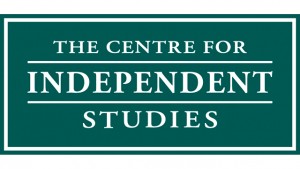
There is a case for the better securing of existing freedom of religion, but how it is dealt with in the coming months will be a test of Australia’s maturity, a new paper by the Centre for Independent Studies (CIS) argues.
In
A Test of Maturity: The liberal case for action on religious freedom, CIS Senior Fellow Rob Forsyth outlines that if the improved securing of existing religious freedom of could be done in a way that neither increases nor diminishes existing common law freedoms — and is supported by a wide section of the community — the matter would in effect be settled for decades.
“Religious freedom, together with other freedoms of association, speech and the right to own property, is crucial to the health of our society and the flourishing of its people,” Forsyth says.
“Supporting freedom of religion in a liberal democratic society does not require — or amount to — agreeing with religious truth.”
However, he says that freedom of religion is not an absolute right and can justly be limited under certain circumstances.
“Freedom of religion involves the freedom to manifest belief in behaviour and actions, and to maintain religious communities and institutions.
“There has been a history of the long enjoyment of religious freedom in Australia without robust legal protection due to our common law tradition. But shifts in culture, and especially in the extent and nature of anti-discrimination law, are changing that.
“There has been both a growth in the range and character of anti-discrimination law especially when individual dignity is seen to require the universal application of an undifferentiated non-discrimination requirement against all groups, including the religious.”
Forsyth warns that while the enactment of same-sex marriage in Australia may have sparked heightened interest, any strengthening of religious freedom “must not in any way as call that decision into question.”
“By achieving civil equality for all individuals and religions, the aim of liberal democracy is to enable the community to live together peaceful despite their doctrinal and theological differences that, historically, had caused bitter social division and strife,” he says.
“Religious freedom protections cannot guarantee that religious points of view will necessarily be listened to, or religious leaders respected in public debate. These are matters properly outside the reach of law in liberal democracies.
“Religious freedom protections should not remove others’ rights to criticise, deny or even ridicule any particular religious belief or practice — as long as it does not involve incitement to discrimination, hostility or violence.”
Forsyth says that any attempts to drive religion from the public square into the exclusively private realm undermine the proper neutrality of the secular state between the religious and non-religious citizens.
“A proposal worth considering is that the federal parliament enact a religious freedom act that, in effect, seeks to clarify and codify common law concepts of religious freedom, as well as existing statutory anti-discrimination protections, into Australian statute law,” he says.
“Given the present state of Australian society, there is a need for a federal act that will guarantee religious freedom into the future by legislating proper protections of existing rights to religious liberty, as opposed to creating specifically any new right or rights.
“For such an act to be effective, it needs to have the support of both sides of politics to prevent the very unsatisfactory situation arising when religious freedom in this country becomes further politicised and unstable,” he says.
The Right Reverend Robert Forsyth is a Senior Fellow at the Centre for Independent Studies and the former Anglican Bishop of South Sydney.

 There is a case for the better securing of existing freedom of religion, but how it is dealt with in the coming months will be a test of Australia’s maturity, a new paper by the Centre for Independent Studies (CIS) argues.
There is a case for the better securing of existing freedom of religion, but how it is dealt with in the coming months will be a test of Australia’s maturity, a new paper by the Centre for Independent Studies (CIS) argues.
New CIS research: the case to better secure religious freedom